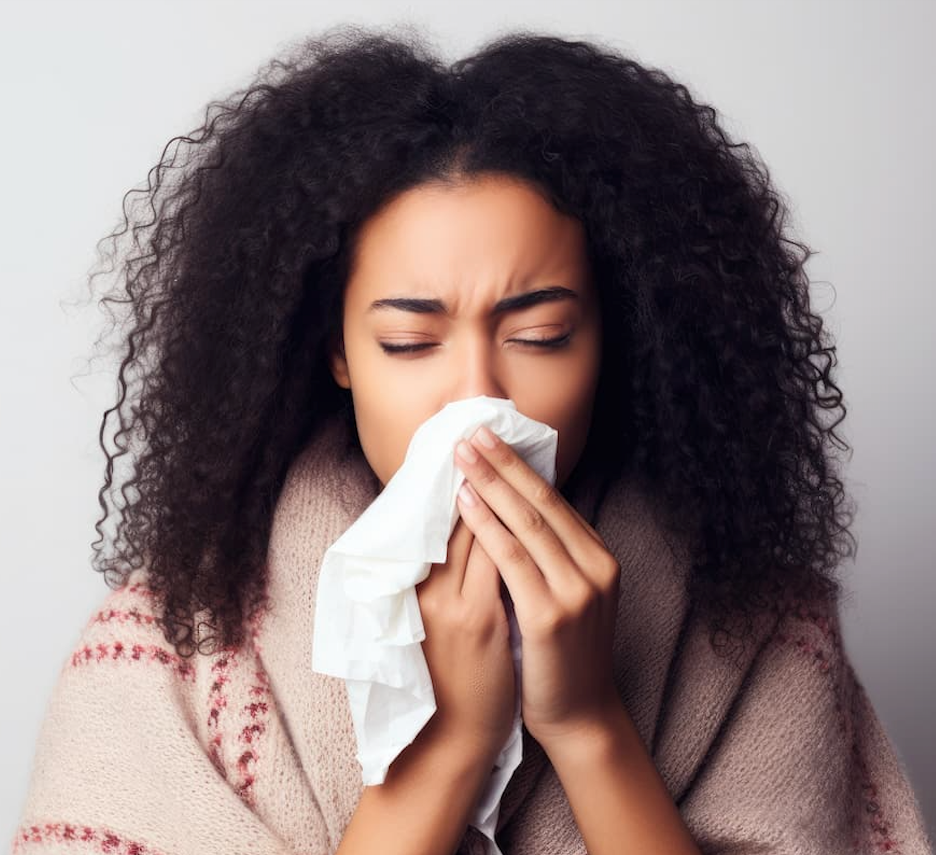How to Protect Your Lungs During Flu Season
Learn how to keep your lungs strong and resilient during flu season with simple tips like staying hydrated, getting vaccinated and practicing good hygiene to protect against respiratory infections.
By
Lana Pine
| Published on September 13, 2024
4 min read
Credit: Adobe Stock/MVProductions

As flu season approaches, keeping your lungs healthy becomes especially important. The flu can lead to respiratory complications, including infections like bronchitis and pneumonia, which place additional stress on your lungs. Maintaining strong lung health can help your body fend off viruses, recover faster and reduce the risk of serious illness. Simple lifestyle changes, such as practicing good hygiene, staying hydrated, exercising regularly and eating lung-boosting foods, can make a big difference in keeping your respiratory system resilient during flu season.
Boost Your Immune System
The best way to protect your lungs during flu season is to prevent infection in the first place. Making sure you’re getting enough rest (seven to nine hours a night), exercising, limiting alcohol and eating well are great ways to keep your immune system in check. Load up on immune-boosting foods such as citrus fruits, berries and leafy greens, which are packed with vitamins C, D, zinc and antioxidants. As water helps to rid the body of toxins and supports immune function, try to drink at least eight 8-ounces glasses of water every day.
If you have a chronic condition, such as chronic obstructive pulmonary disease (COPD) or asthma, be sure to take your medications as prescribed. Another great way to give your immune system a fighting chance is to quit smoking, as it can reduce your body’s ability to fight off respiratory viruses.
Wash Hands Frequently
Washing your hands regularly can prevent infections by limiting the spread of germs. The US Centers for Disease Control and Prevention (CDC) recommends people wash their hands before and during preparing food, before and after caring for someone who is sick, before and after treating a cut, after using the bathroom, after coughing, sneezing or blowing your nose, after touching an animal or animal waste, and after touching garbage. They advise people scrub their hands for at least 20 seconds (the time it takes to sing the “Happy Birthday” song twice) with soap and warm, running water. If soap isn’t an option, you can also use a hand sanitizer with at least 60% alcohol.
Avoid Sick People
Keep your distance from people who are sick to prevent catching the flu and a variety of other common illnesses. This is a two-way street: when you are sick, you should avoid leaving the house—including for work, school and errands—until your symptoms begin to get better and you have not had a fever for at least 24 hours. Being diligent about hygiene when you’re either sick yourself or around sick people is an important way to avoid the spread of germs—and be sure to clean and disinfect frequently touched surfaces, like doorknobs.
Get Vaccinated
Flu shots reduce the risk of serious respiratory complications, which is especially important for people who are immunocompromised. The shot works by helping your body produce antibodies that protect against infection, with the highest level of antibodies produced one to two months post-vaccination.
The American Lung Association (ALA) suggests everyone six months or older receive an annual vaccine around September or October, before the flu begins to circulate. However, later vaccination is still beneficial. The shot is covered by most insurance plans and while most people don’t experience any adverse events, the most common side effects are swelling and tenderness around the injection site.

